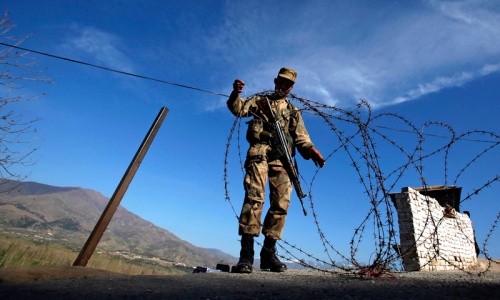Pakistan says evidence of Balochistan interference shared with India

ISLAMABAD: Pakistan has shared with India evidence of foreign interference in Balochistan and has raised the issue at every relevant forum, foreign secretary Jalil Abbas Jilani said Saturday.
Speaking to reporters after a briefing of the Senate Standing Committee on Foreign Affairs, Jilani on Saturday said that there was evidence of Indian interference in Balochistan, and that it was being raised at all forums.
He said that the issue was also raised by the Prime Minister Nawaz Sharif with his Indian counterpart Manmohan Singh during their meeting in New York.
The foreign secretary pointed out that there were reservations with India over the issue of terrorism. He said terrorism was a concern not only for Pakistan but for India as well, but stressed that pointing fingers and hurling accusations was not a solution.
Pakistan wants to resolve all outstanding issues with Indian, including Kashmir, through the process of dialogue, he said.
Kashmir, claimed in full by both India and Pakistan and divided by the heavily-militarised Line of Control (LoC), has remained a central point of tension between the two neighbouring countries. The two sides also often trade allegations of ceasefire violations from both sides of the disputed border.
Pakistani Prime Minister Nawaz Sharif met with his Indian counterpart Manmohan Singh in New York on Sunday for the first time since Sharif swept to power in May promising an improvement in relations with regional neighbours.
Sharif has insisted on dialogue with India as the mainstay of his foreign policy and “the only way forward" in normalising the situation with India.
India accuses Pakistan of allowing militants to use its soil to mount attacks against India. Pakistan blames the other for aiding separatist militant groups based in Balochistan.
During their meeting on the sidelines of the United Nation General Assembly (UNGA) in New York, the two leaders agreed to reduce tensions and restore ceasefire at the disputed Kashmir border as a first step in defusing tensions and restoring lasting peace in the region.
Singh will step down as prime minister of India next year.













































